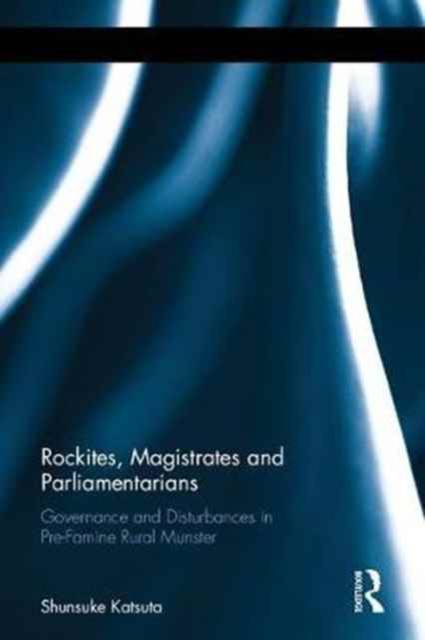
- Retrait gratuit dans votre magasin Club
- 7.000.000 titres dans notre catalogue
- Payer en toute sécurité
- Toujours un magasin près de chez vous
- Retrait gratuit dans votre magasin Club
- 7.000.0000 titres dans notre catalogue
- Payer en toute sécurité
- Toujours un magasin près de chez vous
Rockites, Magistrates and Parliamentarians
Governance and Disturbances in Pre-Famine Rural Munster
Shunsuke Katsuta
195,95 €
+ 391 points
Description
Early nineteenth-century Ireland witnessed widespread and prolonged rural unrest, as groups of labourers and smallholders formed secret societies demanding land reform, fair rents, the protection of wages and an end to tithes. One of the most active of these groups - the Rockites - waged a vigorous and sustained campaign of arson, intimidation and houghing (maiming of animals) across the southern half of Ireland during the 1820s, quickly attracting the attention of the authorities in both Ireland and Britain. Combining analyses of local and economic concerns with wider national political dimensions, this book offers an in-depth and alternative interpretation of the Rockites. Attaching particular importance to the political dimensions of the Rockites, Katsuta demonstrates how their political mindset was created by local circumstances. Styling themselves descendants of the United Irishmen, Rockites drew on the memories of the bitter political struggles in Cork during the 1790s, as well as current political events such as Daniel O'Connell's mass mobilisation to oppose the Catholic relief bill in 1821. As well as situating the Rockites within the Irish context, the book also offers insights into how British politicians dealt with Ireland in the early years of the Union. The Rockite disturbances prompted the Tory government to adopt a new course that proved less a remedy to problems in Ireland than as a response to events within parliament. In turn Rockites became a useful tool for Whigs and radicals in Westminster to blame the Tories for the misgovernment of Ireland, revealing how the Irish question in the early nineteenth-century UK was regarded first and foremost as a parliamentary issue.
Spécifications
Parties prenantes
- Auteur(s) :
- Editeur:
Contenu
- Nombre de pages :
- 178
- Langue:
- Anglais
- Collection :
Caractéristiques
- EAN:
- 9781472478993
- Date de parution :
- 24-08-17
- Format:
- Livre relié
- Format numérique:
- Genaaid
- Dimensions :
- 156 mm x 233 mm
- Poids :
- 452 g

Les avis
Nous publions uniquement les avis qui respectent les conditions requises. Consultez nos conditions pour les avis.






